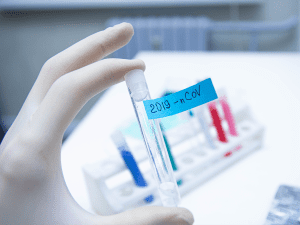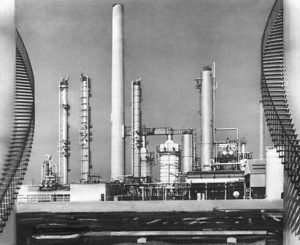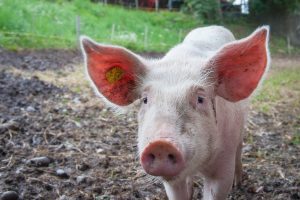
Ukraine has launched the domestic production of PCR tests and the first batch of 200,000 tests has been sent to regions, Secretary of the Coordination Council for Fight against COVID-19, Deputy Head of the Office of the President of Ukraine Kyrylo Tymoshenko said.
“As we promised a few weeks ago, Ukraine has launched the production of PCR tests. Today we have received the first batch of 200,000 tests. They will be sent to regions, the laboratories specialized in PCR testing, during the weekend,” the president’s press service cited him.
According to Tymoshenko, another batch of 400,000 tests is expected to be ready next week. The production of domestic PCR tests will continue and they will be distributed among healthcare institutions.

Ukrainian pharmaceutical company Microkhim (Rubizhne, Luhansk region) is ready to start production of a generic antiviral drug to combat the coronavirus disease (COVID-19) by the end of the year, Microkhim Director General Ihor Pohromsky has said in an interview with the Uriadovy Kurier government’s newspaper. “Now the key point is that we are transporting the substance. In the near future we will expose it to comprehensive analytical control, develop a dosage form and establish and conduct bioequivalence clinical trials. There is a lot of work ahead. There is a lot of professional work that we can do, but it has terms and limitations. However, the situation is such that, despite quarantine, we are ready to work to provide the country with a domestic drug this year, and I am sure that we will be first among national manufacturers, who will develop it,” he said, adding that it comes to the production of generic Avigan.
According to Pohromsky, “the drug was developed in Japan against several influenza viruses in 2014, and in 2015 it passed the third phase of clinical trials in the United States. It happened so that it was tested during an epidemic in Wuhan, and later allowed for experimental use in Italy against COVID-19. By the way, it has already become known that more than 30 countries have asked Japan to provide them with this drug for combating COVID-19. Japan has provided it to Ukraine to continue clinical trials involving patients with COVID-19.”
The general director said that the price of the generic drug made in Ukraine will be much lower than the price of the original. In addition, in the context of global hype, it is difficult to talk about the wholesale supply of original drugs to Ukraine. Therefore, according to Pohromsky, it is necessary to start domestic production.

JKX Oil & Gas with assets in Ukraine and Russia in the first quarter of 2020 increased its average daily hydrocarbon production by 11% compared to the same period last year, to 10,996 barrels of oil equivalent per day (boepd), the company said on the London Stock Exchange’s website.
Thus, the average daily production in Ukraine increased by 7%, to 5,361 boepd, including gas production increased by 1%, to 715,000 cubic meters per day (Mcmd), oil and condensate by 38%, to 1,155 boepd. The average daily hydrocarbon production in the Russian Federation increased by 16% and amounted to 5,635 boepd. In particular, the average daily gas production for the reporting period is 946,000 cubic meters per day (16% more), condensate some 65 boepd (15% more).
The report says that well No. 143 was commissioned in the Ihnativske field in Ukraine in the first half of March. Its production rate is currently 157 barrels of oil per day (bopd) and 65,000 cubic meters of gas per day.
The average selling price of gas in Ukraine in January-March was $150 per 1,000 cubic meters, which is 44% less than a year earlier ($269), oil some $49 per barrel (17% less).
The company’s cash and cash equivalents as of March 31, 2020 were equal to $14.2 million (as of December 31 some $20.6 million). In addition, JKX had $2.4 million worth of oil and gas reserves ($4.1 million as of December 31).

KSG Agro agricultural holding intends to achieve a 15% increase in pig breeding in live weight for 2020 compared to 2019.
“Increasing production is our strategic goal. Moreover, the market situation and increasing demand contribute to this. Therefore, our plans this year are to increase pig breeding products in live weight by 15% compared to the same indicator in 2019,” KSG Agro Board Chairman Serhiy Kasyanov told Interfax-Ukraine.
According to him, the agricultural holding did not revise investment plans for 2020 due to quarantine and the uncertain economic situation in Ukraine.
“These plans are valid and we did not change them. The planned investment for the year to continue the reconstruction of the main industrial complex and the start of the design of the genetic reproducer will be about UAH 25 million. The genetic reproducer will produce Danish boars and sows, which will allow us to reduce costs and start sales to other customers,” the owner of KSG Agro said.
Kasyanov said that in 2020 the holding plans to increase exports of manufactured products.
“In the first quarter of this year, we exported 1,356 tonnes of wheat flour to Libya. Export volumes are growing. For comparison, we shipped 720 tonnes of wheat flour for 2019. So far, despite the crisis, we plan to increase the export of our products. In the second quarter we intend to export 2,000 tonnes of wheat flour, some 1,000 tonnes of barley, some 500 tonnes of refined sunflower oil and some 1,000 tonnes of other goods,” the KSG Agro board chairman said.
KSG Agro, a vertically integrated holding, is engaged in pig breeding and production, storage, processing and sale of grain and oilseeds. As of June 30, 2019, the land bank of the holding in Ukraine amounted to about 27,000 hectares.

Biosphere Corporation has postponed the launch of the diaper production line with Italian equipment for a month, but plans to start the mass production of diapers in May, the corporation’s press service has told Interfax-Ukraine.
“Despite the quarantine and the impossibility of the Italians to visit our factory in Dnipro, our specialists remotely learned how to assemble, understood the process and assembled the equipment within a month. It will be launched a few weeks later than planned, but we are already preparing to launch it,” the press service said.
The corporation invested in Italian equipment for that line, the installation of which was postponed due to quarantine in Italy.
The Biosphere Corporation has been operating in Ukraine for over 20 years. Its products are presented in about 20 markets of Europe and Asia. The product portfolio includes more than 2,000 items.

PJSC Azot (Cherkasy), part of Dmytro Firtash’s Group DF, in January-March 2020 increased production of nitrogen fertilizers by 22% compared to the same period in 2019, to 444,100 tonnes, according to a company press release.
Thus, the production volume of commercial ammonium nitrate amounted to 147,100 tonnes (21%), commercial urea some 168,600 tonnes (23%), urea-ammonia mixture some 126,100 tonnes (22%), and ammonia water to 2,300 tonnes. In addition, 216,300 tonnes of ammonia and 168,900 tonnes of non-concentrated nitric acid were produced.
Since the beginning of this year, all production facilities of Cherkasy Azot have been operating at 100% load. One of the factors contributing to the growth of production was weather conditions that allowed farmers to start field work much earlier, the report said.
“The company continues to work, despite the special conditions during the quarantine period, and fully fulfills all contracts, ensuring uninterrupted supplies of nitrogen fertilizers to agricultural producers,” Group DF’s press service said citing Vitaliy Skliarov, the chairman of the company’s board.
PJSC Cherkasy Azot is one of the largest Ukrainian chemical enterprises. It is engaged in production of mineral nitrogen fertilizers. Since 2011, it has been part of Ostchem Group (the Group DF nitrogen business).